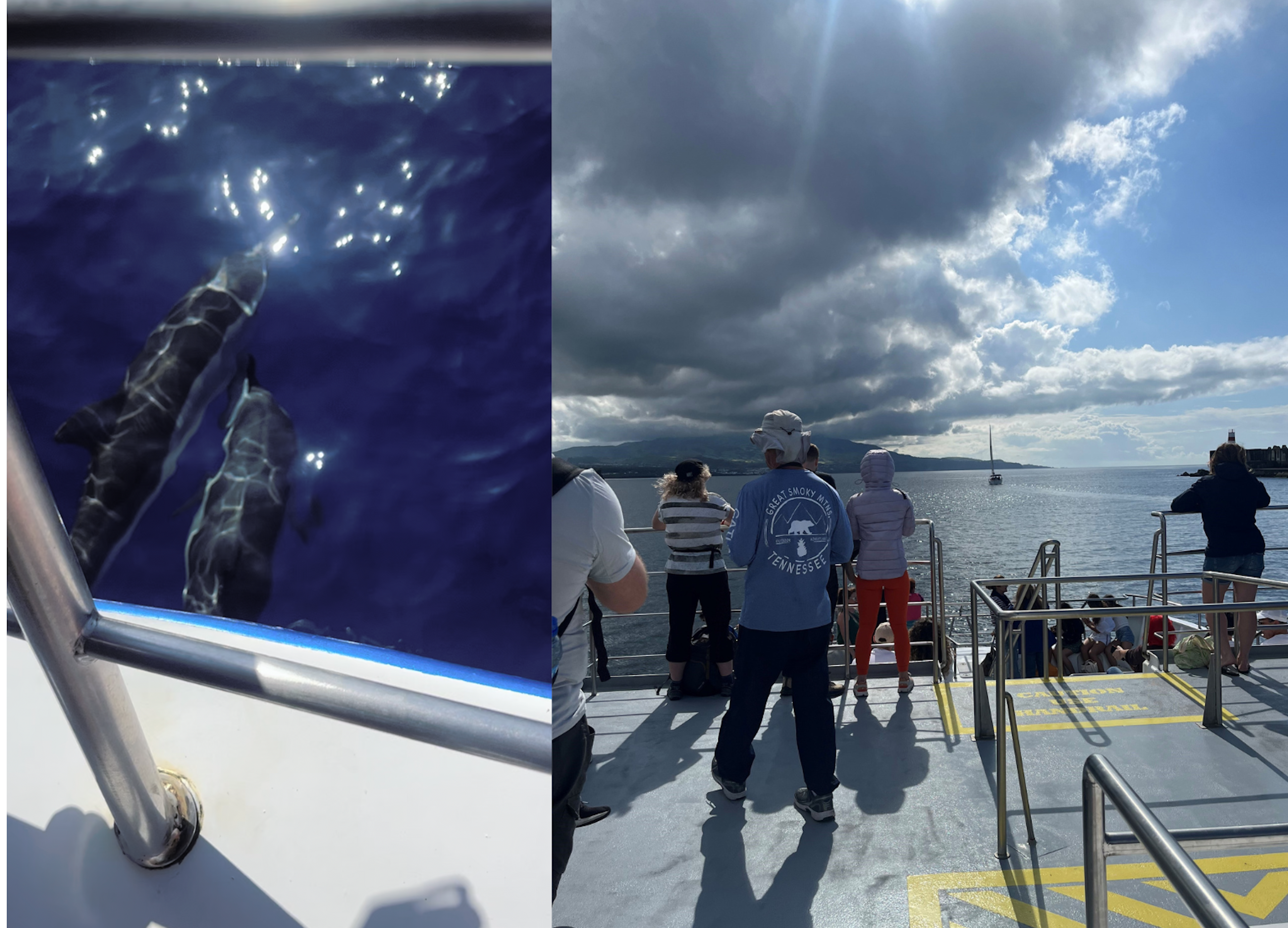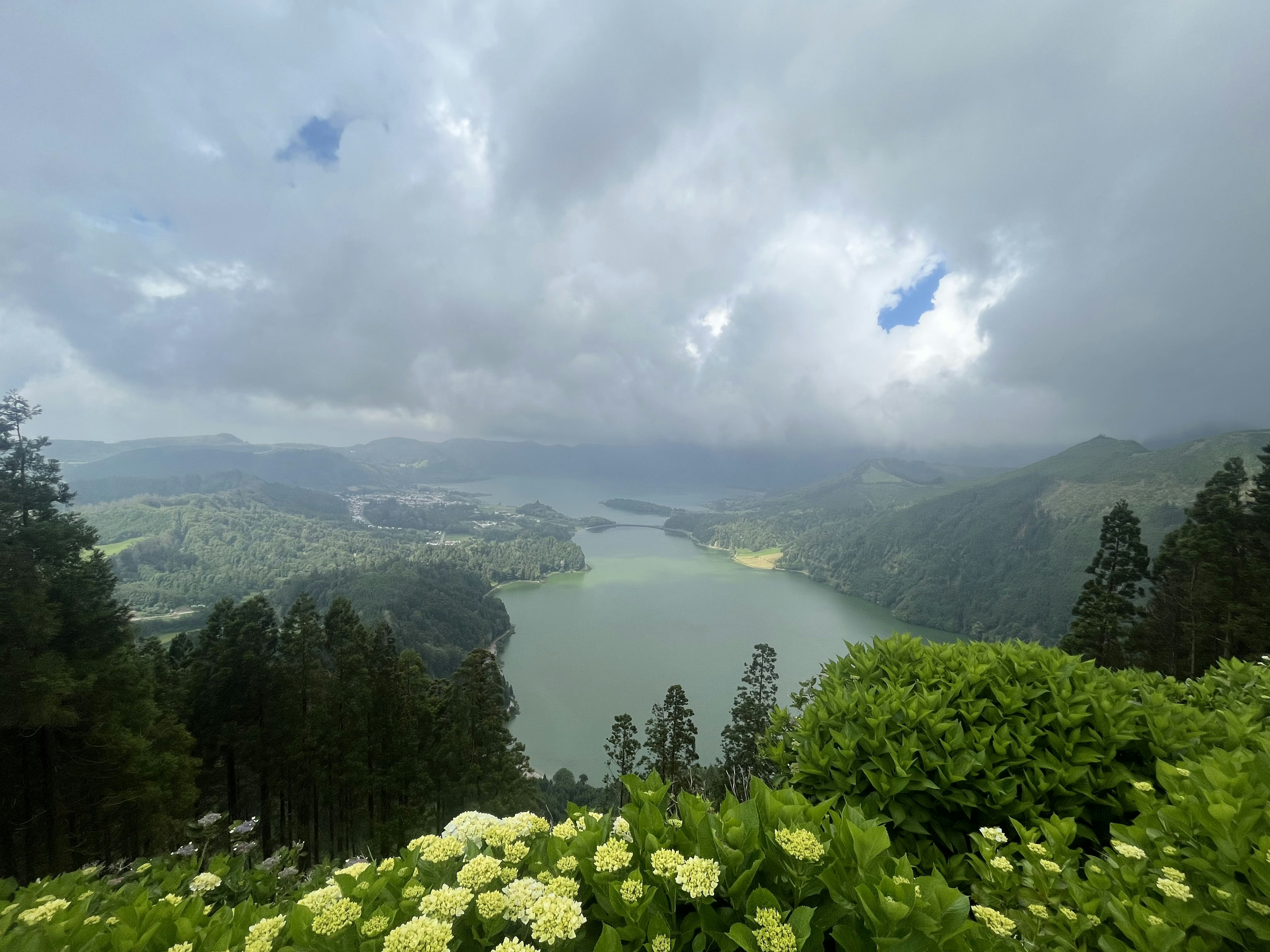AnneMarie McCarthy, an editor from Lonely Planet, recently came back from an engaging week in the Azores, where she explored four distinct islands over 7 days.
Being the fortunate destination editor responsible for Lonely Planet’s coverage of Portugal, there’s one thing I can absolutely reassure you about: everyone adores the Azores. Each week, I observe how readers like you are diving into information about these lush isles that all your experienced traveler pals are enthusiastically discussing.
Upon receiving an invitation from Visit Azores, I swiftly grabbed my raincoat and sunblock to explore the archipelago firsthand. During the span of a week, I journeyed to São Miguel, Pico, Faial, and Terceira islands, commuting mostly by air but also by ferry.
What was the most touristy thing you did?
The highlight of my tourist activities was also the one I cherished most: a tour for dolphin- and whale-watching that departed from Ponta Delgada on São Miguel. Luck hasn’t been on my side with wildlife spotting before, but with Azores being one of the premier locations globally for cetacean sightings, I hoped for the best. The ideal period to embark is between April and early July, during the annual whale migration when various species frequent the waters. In just under 3 hours at sea, we encountered dolphins, orcas, sperm whales, and pilot whales. With whales maintaining a respectful distance, the dolphins enthusiastically approached, playfully darting in front of the vessel.

In the Azores, only a select few companies possess licenses for this kind of adventure, all operating under stringent “rules of engagement” such as avoiding frontal approaches to the marine life and maintaining an appropriate distance (with multiple vessels, the distance increases). This regulation doesn’t diminish your viewing experience, though. I opted for Futurismo, which conducts two to three excursions daily. Their assurance in successful sightings is so high that should you be unfortunate, they offer a complimentary follow-up tour.
What was the handiest thing you packed?
My raincoat was indispensable. Despite the frequent sunshine, showers could strike unexpectedly. The forecast for the islands is often unreliable – so spending significant time outdoors calls for preparations against any weather condition. A lightweight, waterproof jacket will enable hours of worry-free hiking.

Regardless of preparation, always avoid hiking off established trails to prevent harming sensitive native flora. Additionally, wild camping is prohibited across all islands. Accommodations are readily available and accessible.
What’s your favorite photo from the trip and where was it taken?
This photograph was captured at the base of a dormant volcano, known as Algar do Carvão. Globally, only three locations permit entry to such sites: Indonesia, Iceland, and right here in central Terceira island. Although a brief tunnel pass is necessary to access the interior, the feel is far from restrictive, with open visibility to the sky above.

Other noteworthy dining experiences were at Pico’s well-known Cella Bar, where on a breezy day I enjoyed wine, tapas, and a view of Faial. Leaving Terceira without tasting the island’s famed Dona Amélia, a moist, spiced cake, would be a mistake. (Actually, each island boasts its unique signature pastry.) I also recommend Quinta do Martelo’s alcatra: a soothing stew prepared in a clay vessel with wine, cooking slowly over time until the meat nearly dissolves.
Did I mention the cuisine in the Azores was outstanding?
AnneMarie McCarthy visited the Azores at the behest of Visit Azores. Lonely Planet does not accept complimentary incentives for favorable content.
